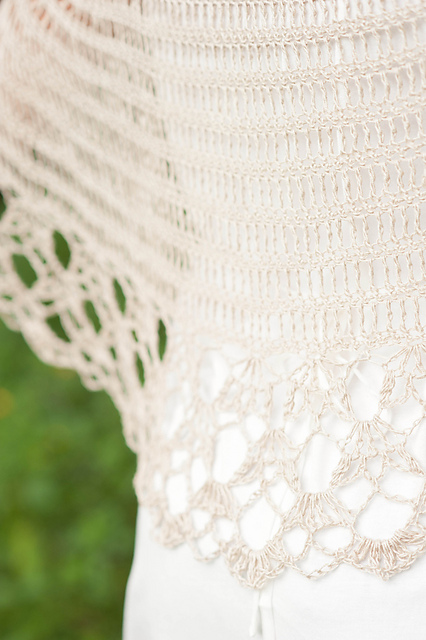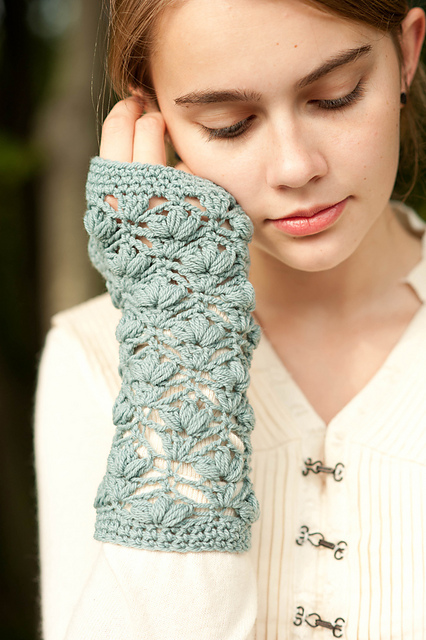Although this blog is primarily about yarncrafting, the bookshelf in my office/studio is much more varied, as you can see in my Goodreads bookshelf. Much of what I do as an editor, writer, and designer is informed by what I read, so while Range of Ghosts has no yarncrafting in it, it's really resonated with me and with a book proposal that I've been drafting out.
 Range of Ghosts by Elizabeth Bear
Range of Ghosts by Elizabeth BearMy rating: 5 of 5 stars
I got up early so that I could finish reading this book while the house was quiet and I could be alone with it, and I'm glad I did. After reading the last page, I sat with my coffee and just sat and explored how deeply satisfying I found this story, and thinking about why.
There is a lot for me to love in this book - the worldbuilding is excellent, and the storyline is smoothly paced. What I love most about it, though, is that this is a well-written story in which I can picture myself as an ordinary person. This is the kind of book that I ached for as a kid, and while things have changed some in sci-fi fantasy writing and in me, that ache has lessened, but I hadn't realized how much of it was still there until it was eased a bit by Range of Ghosts.
For some thoughtful reading on Orientalism in fantasy:
It is known: Game of Thrones, the Orient, and Conventional Wisdom (Stokes, Overthinking It blog)
"Consider the the rival powers in Westeros. The Starks are fatalistic, duty-bound, honorable but kind of unsophisticated. The Lannisters are appetite-driven plutocrats. The Baratheons were markedly varied, but the surviving one is driven and joyless, having perhaps inherited the Stark “hat” now that there’s not a Stark head left to wear it. The Martells are given to plotting and sexual license. We know less about the Tyrells, but they seem to value chivalry and court culture: consider Loras’ prowess, consider the splendor of Margaery’s entourage and weddings, consider how much more talented the Tyrell fool Butterbumps is than any of the other fools we’ve met.
Now, consider the rival powers among the Dothraki. Was it Khal Jommo’s khalasar that valued chivalry? Were Khal Ogo’s people the least trustworthy? Did Khal Drogo’s have a unique worldview shaped from their long tradition of cultural exchange with the Free Cities? Or are all the khalasars exactly freaking the same, because that’s how it works when you’re an oriental other in speculative fiction?"
The Big Idea: Elizabeth Bear (part of The Big Idea series on John Scalzi's Whatever blog)
"There have always been exceptions, and this is changing, but too many fantasy worlds traditionally have not only failed to step outside of Tolkien’s worldbuilding, but don’t question the Eurocentric view of world history so many English speakers (I can’t say “the majority,” because I believe at last check India has more English speakers than most of the rest of the world) are given in grammar school. We speak of Alexander the Great, after all–and the terrifying Mongol Hordes. But the roles of Alexander and of Genghis Khan in history are not actually so very different."
View all my reviews
As a member of the Powell's Books Partner Program, I receive a 7.5% commission on referrals.








